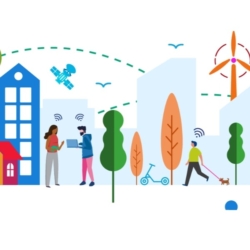To provide the best experiences, we use technologies like cookies to store and/or access device information. Consenting to these technologies will allow us to process data such as browsing behaviour or unique IDs on this site. Not consenting or withdrawing consent, may adversely affect certain features and functions.
The technical storage or access is strictly necessary for the legitimate purpose of enabling the use of a specific service explicitly requested by the subscriber or user, or for the sole purpose of carrying out the transmission of a communication over an electronic communications network.
The technical storage or access is necessary for the legitimate purpose of storing preferences that are not requested by the subscriber or user.
The technical storage or access that is used exclusively for statistical purposes.
The technical storage or access that is used exclusively for anonymous statistical purposes. Without a subpoena, voluntary compliance on the part of your Internet Service Provider, or additional records from a third party, information stored or retrieved for this purpose alone cannot usually be used to identify you.
The technical storage or access is required to create user profiles to send advertising, or to track the user on a website or across several websites for similar marketing purposes.
 An analysis of the impact of generative artificial intelligence (AI) on the UK labour market uncovers a ‘distinct sliding doors moment’, with possibilities for huge job disruption in future or significant GDP gains, depending on government policy. The report from think tank the IPPR claims to identify two key stages of generative AI adoption: the first wave, which is here and now, and a second wave in which companies will integrate existing AI technologies further and more deeply into their processes. (more…)
An analysis of the impact of generative artificial intelligence (AI) on the UK labour market uncovers a ‘distinct sliding doors moment’, with possibilities for huge job disruption in future or significant GDP gains, depending on government policy. The report from think tank the IPPR claims to identify two key stages of generative AI adoption: the first wave, which is here and now, and a second wave in which companies will integrate existing AI technologies further and more deeply into their processes. (more…)

































March 25, 2024
How to create a truly inclusive office design
by Alesya Karnaukhova • Comment, Workplace design